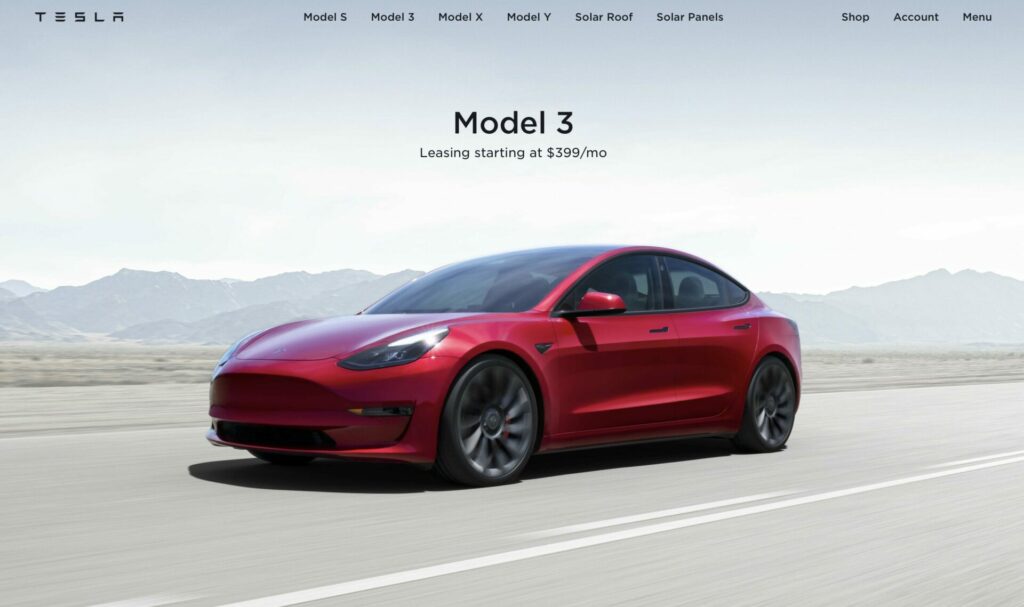Tesla Anticipates Losing Full $7,500 Federal Tax Credit on Cheapest Model 3: Report

Photo: Tesla
Tesla has informed employees that it expects to lose the full $7,500 federal tax credit for its cheapest electric car, the Model 3 Standard Range, due to the vehicle’s batteries being sourced from China, according to information obtained by Electrek. The tax credit program for electric vehicles, which came into effect in January, has led to a surge in demand for electric automakers, with Tesla being the biggest beneficiary.
Over the last three months, eligible buyers in the US could receive a $7,500 tax credit on all Tesla Model 3 and Model Y vehicles, the automaker’s two most affordable and popular models. However, this was expected to change by the end of March due to the new tax credit program’s requirements for battery production in North America and battery material sourcing from countries with free trade agreements with the US.
The guidance on how these requirements would be implemented was not available when the new tax credit took effect in January, so they were waived until the second quarter. The IRS is expected to release detailed guidance on these requirements soon.
Electrek’s sources reveal that Tesla has communicated to employees that it expects the IRS to release this guidance shortly, and the automaker anticipates losing the full credit on the Model 3 Standard Range, which is produced in Fremont, California, but uses LFP battery cells made in China.
The communication with employees seems to be a preparatory measure for buyers of these vehicles, as access to the full credit could change if deliveries occur on April 1 rather than March 31, pending official guidance.
Tesla’s other Model Y and Model 3 vehicles in the US are expected to retain access to the full tax credit, as they use battery cells produced by Tesla or Panasonic in Nevada, California, or Texas. Tesla appears confident that battery material sourcing won’t be an issue, as a significant percentage of its battery materials are sourced from countries with free trade agreements, such as Australia and Canada.

